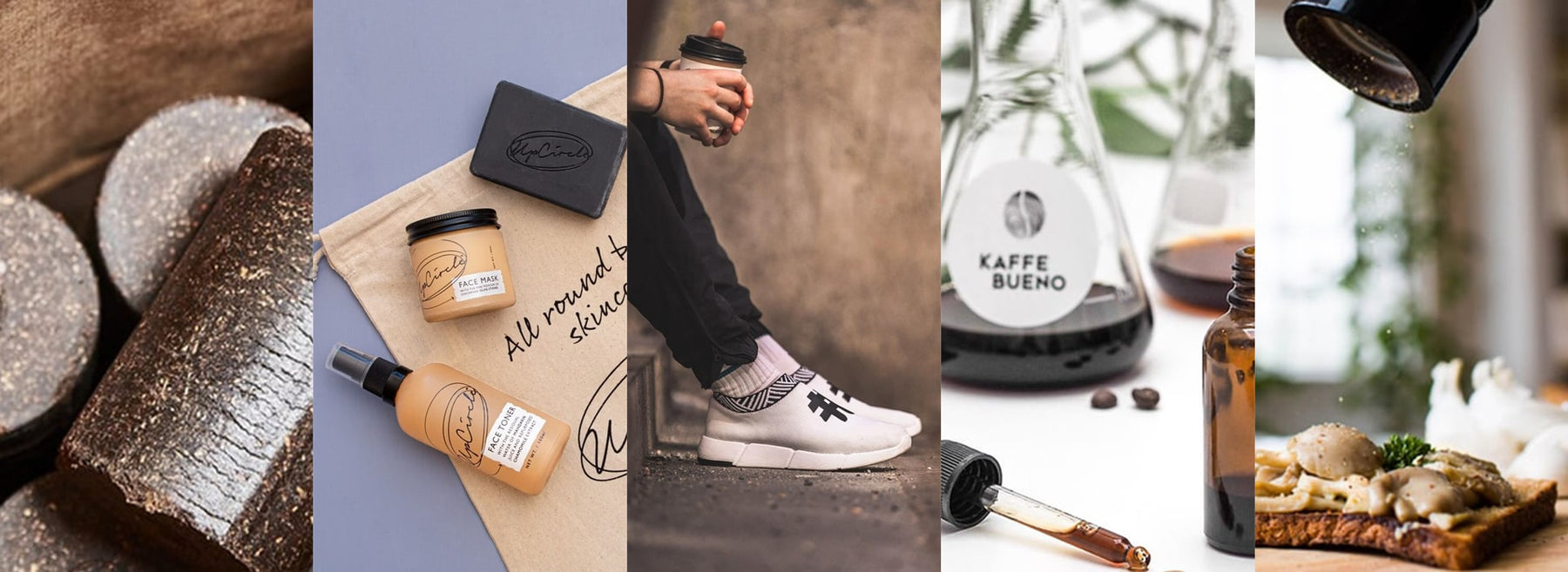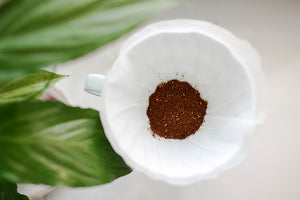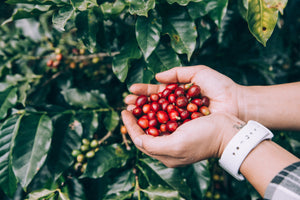
5 Companies reusing coffee waste to create luxury products.
Last month we shared this blog post explaining how home coffee drinkers can reuse their coffee grounds and reduce waste from their favourite brew. Of course it’s a great way to enjoy a coffee & do your bit for the planet….but what about all that commercial coffee waste?
Out-of-the-house coffee consumption (ie takeaways, at work or in hospitality venues) accounts for 35% of the coffee drunk in the UK. Considering that a high proportion of home-drinkers opt for instant coffee (we’re still working on bringing them over to team beans!), it would be fair to assume that the commercial coffee accounts for a sizable amount of coffee waste per year.
With this in mind we’ve rounded up our favourite companies inventively reusing coffee grounds on a grand scale. If you like the idea of circularity and waste-free living you’ve absolutely should check them out & give them your support.
1. Bio Bean
This forward thinking company take commercial coffee waste from businesses, saving them weight and space in their refuse collections and turn them into useful products.
By keeping the coffee waste within food-grade conditions, Bio Bean are able to extract the remaining coffee oils and flavours to be condensed into natural flavouring products which go back into commercial hospitality.
They are probably best known for their fire fuel ‘coffee logs’ which exploit the high calorific value of coffee grounds and provide a more sustainable alternative to conventional solid fuels. Because the grounds are compacted, the logs burn longer and hotter than traditional firewood and create 80% less emissions than sending the coffee to landfill. They’re ideal for wood burners and firepits and the best bit is they give off an amazing coffee aroma as they burn!
2. UpCircle
Former Dragon’s Den contestants UpCircle create 100% natural, 100% brilliant skincare products from coffee grounds, fruit tones and chai spices which otherwise would end up in landfill. Due to the goodness left in these waste items UpCircle’s products smell amazing, are great for your skin and have even won awards!
3. Rens
Rens make the world’s first coffee sneakers. Their lightweight shoes are made from the equivalent of 6 plastic water bottles and 21 cups’ worth of used coffee grounds. Taking full advantage of coffee’s natural odour-neutralising capabilities; Rens are confident that their fully-waterproof trainers are naturally antibacterial and trap unpleasant odours.
4. Kaffe Bueno
Award-winning Kaffe Bueno take commercial coffee grounds and scientifically process them to extract the goodness and useful elements that remain after brewing. They create 3 distinct products ready to go back out to consumers:
Kaffe Beuno oil has applications both as a food product for flavouring, but also a cosmetic ingredient. Coffee oil is well known to have all sorts of beauty and skincare uses such as UVB protection, anti-aging, wound healing, moisturising and hair care.
Kafflour
is a gluten free flour upcycled from coffee grounds. It is rich in protein, low in fat and sold to bakeries, pizzerias and for use in sports nutrition/snack bars.
Kaffibre is the defatted coffee grounds. With no oils or goodness left in them you’d think they must be Kaffe Bueno’s only waste product but even these are reused in the beauty industry for use in exfoliating scrubs and face-masks.
5. GroCycle
Coffee grounds are nutrient rich and Social Enterprise Grocycle use waste grounds collected from businesses to grow oyster mushrooms. If you fancy having a go at growing your own coffee-fuelled mushrooms you can order a super-simple ready made mushroom kit from GroCycle and watch the magic happening in your own kitchen!








